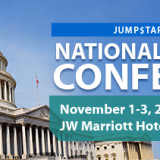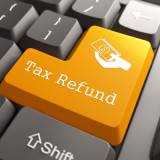Scholarships are available to this November’s Jump$tart National Educator Conference in Washington, DC
by Shane Tripcony
The statistics paint a grim picture. According to the 2012 “Financial Literacy Survey of Adults,” two in five Americans gave themselves a grade of C, D, or F on their knowledge of personal finance topics. And if anything, the survey results indicate that those marks may have been too generous.
Indeed, 56 percent of those surveyed conceded that they don’t have a household budget and 39 percent reported not having any non-retirement savings. Ensuring that today’s young people don’t eventually find themselves in the same financial predicament as their elders is one of the main goals of the Jump$tart Coalition’s National Educator Conference, which will be held in the nation’s capital this November 1 through November 3.
Now in its fifth year, this annual conference is devoted to providing Pre-K through grade 12 teachers with the knowledge and resources they need to effectively instruct students about a wide range of personal finance topics. Designed with classroom teachers in mind – both those who lead stand-alone courses in personal finance or who incorporate it into other classes – this year’s gathering will include sessions on everything from curriculum development to what constitutes smart college borrowing for high school students to Federal Reserve Bank resources available to secondary educators.
The credit bureau Experian recently announced that it would provide 20 scholarships to teachers that have not attended the conference before. Experian, one of the underwriters of this year’s conference, will cover attendees’ registration fee of $395, all conference meals and receptions as well as two nights in a hotel; travel and incidental expenses are not included. Anyone interested in applying for the scholarship should email [email protected] and include the following information: the teacher’s full name; the full name and address of the school or school district where the teacher is employed; and a short description of the course or unit in which the applicant teaches personal finance.
All applicants must be full-time, licensed and certified teachers currently employed by a school district. Although there is no deadline to apply, scholarships will be awarded on a first-come, first-served basis.





